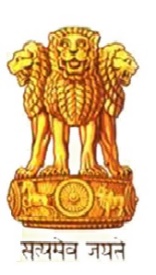
PERMANENT MISSION OF INDIA
GENEVA
Welcome remarks by Shri Rajiv Kumar Chander, Ambassador and Permanent Representative of India to the United Nations and other International Organizations in Geneva
at the event organized to mark ‘World Down Syndrome Day’
at United Nations Office in Geneva
on Wednesday 21st March, 2018.
Director General, UNOG, Mr. Michael Moller
Dr. (Mrs) Surekha Ramachandran, President – Down Syndrome Federation of India
Dr. (Mrs) Bhavani Sriram , Vice President - Asia Pacific Down Syndrome Federation
Dr (Mrs) Lalita Joshi, President- Down Syndrome Association of Nepal
Excellencies, Ladies and Gentlemen
I welcome you to this special event where Permanent Mission of India to United Nations and the Asia Pacific Down Syndrome Federation have joined hands to mark the World Down Syndrome Day, which falls on a symbolic date of 21 March. As many of you might be aware that the Down Syndrome occurs when an individual has a full or partial extra copy of chromosome no. 21. Hence, the persons with Down Syndrome have 47 as compared to 46 Chromosomes.
This chromosomal condition is associated with intellectual and learning challenges. Delayed development and behavioural problems are often reported in children with Down Syndrome. The UNGA passed a resolution in 2011 declaring 21 March to be designated as WDS Day in order to raise public awareness of Down Syndrome.
Every year 20 to 22 thousand children take birth with Down Syndrome in India. It goes without saying that there is a need to bring them in the social mainstream. India’s Ministry of Social Justice & Empowerment is the nodal Ministry which is working for the empowerment and social inclusion of people living with Down Syndrome. This is to underscore the point that Down Syndrome is not just a genetic or a medical condition but it has a wider social, cultural, and emotional context.
Speaking at the 12th World Down Syndrome Congress held in 2015 in India the Union Minister for Social Justice & Empowerment of India stated that the Government is committed towards betterment of people with Down Syndrome and will focus upon inclusive education, financial independence. We will increase the number of disabilities from 7 to 19 and are also working on bringing in a new legislation that will empower those with Down Syndrome.
The Human Rights of people living with this disability should be promoted and protected. There is a need to create wider awareness among common masses what this syndrome is all about. For this we need to have in place a well thought out communication and knowledge Strategy. Another area where we should focus is Research and Development and share best practices in the field of Down Syndrome. It is important that inclusion of persons with Down Syndrome should become a top priority in the countries we represent.
Health Professionals, Member of Civil Societies and other Stakeholders need to continue to work in a coherent and coordinated manner in order to extend their support to these persons. People’s participation is very much a necessity for successful implementation of the various programmes and schemes at National, Regional and Global level. Our collective goal is to ensure that people with Down Syndrome can and do lead full and rewarding lives and contribute as valued and equal members of our society.
I would like to take this opportunity to thank the Director General for agreeing to deliver the opening remarks and I look forward to listening to the eminent panelists.
*****












